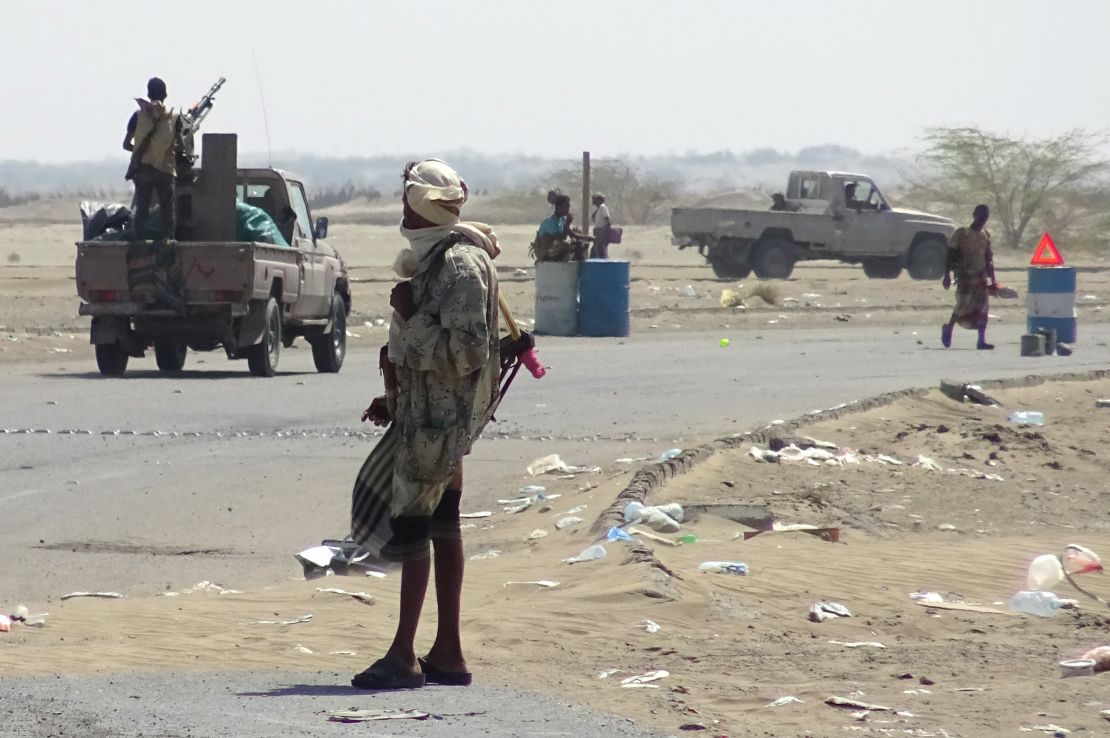The opposing sides in Yemen’s conflict began direct talks in Sweden on Thursday as a step towards calming violence and averting further humanitarian crisis in the war-torn country.
However, the first direct discussions between the parties in two years started just hours after they traded threats.
Houthi rebels said they would completely shut down Sanaa airport – which they control – unless Saudi Arabia eased its air blockade.
Meanwhile, Saudi-backed Yemeni officials demanded a Houthi withdrawal from the strategic port city of Hodeidah.
United Nations Special Envoy Martin Griffiths said the discussions would assess “if there is an appetite for opening the Sanaa airport,” and “how the two parties can contribute to a coherent economic plan.”
“Remember, these are consultations. We are not yet beginning the process of negotiations,” Griffiths said, adding that he does not want to be “over optimistic.”
A prisoner swap agreement that would reunite thousands of families has already been reached, he said.

Addressing Yemeni delegations sitting on opposite sides of the room, the envoy warned that “difficult decisions” would have to be made in the negotiation process.
On Thursday morning, Houthi rebel leader Mohammed Ali al-Houthi threatened to close Sanaa airport to United Nations officials unless “all airlines could use the airport.” Saudi Arabia stops non-UN flights into the Yemeni capital.
The airport is a key route for UN officials and the international aid organizations operating in Houthi-held Yemen.
Yemen’s Saudi-backed, internationally recognized government also set conditions hours before the talks, demanding that Hodeidah, a major flashpoint in Yemen’s war, is returned to the government.
Hodeidah has a civilian population of around 600,000. The port city, held by the Houthi rebels, serves as an entry point for 70% of foreign humanitarian aid into Yemen, according to the UN.
The UN-sponsored talks come amid growing international pressure for a ceasefire as the humanitarian crisis worsens in the country after more than three years of war.
Twenty million people in Yemen are hungry, with 1.8 million children “acutely malnourished,” according to a report released Thursday, by the government of Yemen, the Food and Agriculture Organization of the United Nations (FAO), the UN Children’s Fund (UNICEF), the World Food Programme (WFP) and humanitarian partners.
The report warns that an “urgent scale up of humanitarian assistance is needed to save lives.”
“Seventy percent of the entire population is food insecure. At least a quarter of million people are barely surviving. Any change in their circumstances, including any disruption in their ability to access food on a regular basis will bring them to the brink of death,” said Lise Grande, Humanitarian Coordinator for Yemen.

Kuwait hosted the last direct peace talks in 2016, which failed after Houthi rebels rejected a UN proposal aimed at ending the war. Yemeni government officials left the discussions shortly afterward.
The negotiations in Sweden almost met a 30-day deadline set by US Defense Secretary James Mattis in October for face-to-face talks.
“Thirty days from now we want to see everybody around a peace table based on a ceasefire, based on a pullback from the border and then based on ceasing dropping of bombs that will permit the special envoy … to get them together in Sweden and end this war,” Mattis said October 30 at the US Institute of Peace in Washington.
His call was later echoed by US Secretary of State Mike Pompeo, who issued a statement saying, “The United States calls on all parties to support UN Special Envoy Martin Griffiths in finding a peaceful solution to the conflict in Yemen.”


